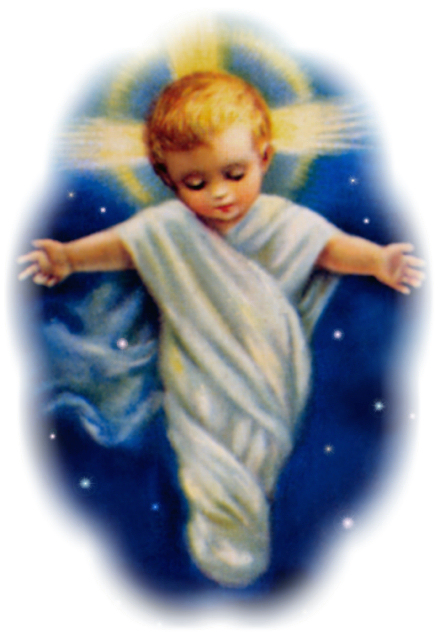  DISCOURSES FOR ADVENT Taken from THE INCARNATION, BIRTH AND INFANCY OF JESUS CHRIST by St. Alphonsus Liguori THE REDEMPTORIST FATHERS 1927 With Nihil Obstat and Imprimatur DISCOURSE III The Eternal Word From Being Lord Became a Servant Part 1 Semetipsum exinanivit, formam servi accipiens. "He humbled Himself, taking the form of a servant."---Phil. 2:7, 8 On considering the immense mercy of our God in the work of the human redemption, St. Zachary had good reason to exclaim, Blessed be the Lord God of Israel, because He hath visited and wrought the redemption of His people. Blessed forever be God, Who vouchsafed to come do upon earth and to be made Man in order to redeem mankind. That being delivered from the hands of our enemies we may serve Him without fear. [Luke 1:68-74] In order that, loose from the shackles of sin and of death, wherein our enemies held us fast bound and enthralled, we might fearlessly, and with the freedom of the children of God, love Him and serve Him during this life, and afterwards go and possess and enjoy Him face to face in the kingdom of the blessed,---in that kingdom closed against us indeed, heretofore, but now thrown open to us by our Divine Saviour. We were, in fact, all heretofore the slaves of Hell; but what has the Eternal Word, our sovereign Lord, done to free us from that slavery? From being Lord He became a servant. Let us consider what a mercy and what an excessive love this has been; but first let us beg light of Jesus and Mary. Almighty God is Lord of all that is, or that can be in the world: In Thy power are all things; for Thou hast created all. [Esther 13:9] Who can ever deny God the sovereign dominion over all things, if He be the Creator and Preserver of all? And He hath on His garment and on His thigh written King of kings and Lord of lords. [Apoc. 19:16] Maldonatus explains the words "on his thigh," to mean here, "by His Own very nature;" and the drift of it is, that to the monarchs of earth outward majesty is annexed by gift and favor of the supreme King, that is God; but God Himself is King by His very nature; so that He cannot possibly be otherwise than King and Lord of all. But this sovereign King, though He bore sway over the Angels in Heaven, and ruled all creatures, yet He did not rule over the hearts of mankind; mankind was groaning under the miserable tyranny of the devil. Yes, before the coming of Jesus Christ this tyrant was lord, and even made himself worshipped as God, with incense and sacrifices, not only of their animals, but even of their own children and of their own lives; and he, their enemy and tyrant, what return did he make them? How did he treat them? He tortured their bodies with the most barbarous cruelty, he blinded their minds, and by a path of pain and misery conducted them down to everlasting torments. It was this tyrant that the Divine Word came on purpose to overthrow, and to release mankind from his wretched thraldom, in order that the unfortunate creatures, freed from the darkness of death, rescued from the bondage of this savage monster, and enlightened to know what was the true way of salvation, might serve their real and lawful Master, Who loved them as Father, and from slaves of Satan wished to make them His Own beloved children: That being delivered from the hands of our enemies, we might serve Him without fear. The prophet Isaias had long ago foretold that our Redeemer should destroy the empire which Satan held over mankind: And the sceptre of their oppressor Thou hast overcome. [9:4] And why did the prophet call him oppressor? Because says St. Cyril, this heartless master exacts from the poor sinners who become his slaves heavy tribute, in the shape of passions, hatreds, disorderly affections; by means which he binds them in a still faster servitude, while at the same time he scourges them. Our Saviour came then, to release us from the slavery of this deadly foe; but how?---in what manner did He release us?---Let us learn from St. Paul what He did: Who being in the form of God, thought it not robbery to be equal to God, but emptied Himself, taking the form of a servant, being made in the like of men. [Phil. 2:6] He was already, says the Apostle, the Only begotten Son of God, equal to His Father, eternal as His Father, almighty as His Father, immense, most wise, most happy, and sovereign Lord of Heaven and earth,  of Angels and
of men, no less than His Father; but for the love of man He stooped to
take the lowly form of a servant, by clothing Himself in human flesh,
and likening Himself to men; and since sin had made them vassals of the
devil, He came in the form of man to redeem them, offering His
sufferings
and death in satisfaction to the Divine justice for the punishment due
to them. Ah! who would have believed it, if holy
faith did not assure us of it? Who could ever have hoped for it?---who
could ever have connived it? But faith tells us and assures us that
this supreme and sovereign Lord emptied
Himseif, taking the form of a servant. of Angels and
of men, no less than His Father; but for the love of man He stooped to
take the lowly form of a servant, by clothing Himself in human flesh,
and likening Himself to men; and since sin had made them vassals of the
devil, He came in the form of man to redeem them, offering His
sufferings
and death in satisfaction to the Divine justice for the punishment due
to them. Ah! who would have believed it, if holy
faith did not assure us of it? Who could ever have hoped for it?---who
could ever have connived it? But faith tells us and assures us that
this supreme and sovereign Lord emptied
Himseif, taking the form of a servant. From his tenderest childhood, the Redeemer, by becoming a servant, was eager to begin and wrench from e devil that dominion which he had over man, according to the prophecy of Isaias: Call His name, hasten to take lay the spoils: Make haste to take away the prey. [8:3] "That is," as St. Jerome explains it, "suffer the devil to reign no longer." Behold Jesus; scarcely born, says the Venerable Bede, before He assumes the form and office of a servant, in order to gain us freedom from the slavery of sin, He causes Himself to be enrolled as a subject of Caesar, and pays him the tribute: "Scarcely born, He is registered in the census of Caesar, and for our liberation Himself is inscribed in the list of servitude." Observe how, in token of His servitude, He begins to payoff our debts by His sufferings; how He allows Himself to be wrapped in swaddling-clothes (a type of the cords which should bind him at a later day, to be led to death by cruel executioners). "God suffers Himself," says a certain author, "to be bound up in swaddling-bands, because He had come to unbind the world from its debts." "Behold Him during the whole course of His after-life obeying with ready submission a simple Virgin and man: He was subject to them." [Luke 2:51] Look at Him as a servant in the poor cottage at Nazareth, employed by Mary and Joseph at one time in smoothing the wood to be worked upon by Joseph in his trade; at another time in collecting the scattered shavings for fuel; then in sweeping the house, in fetching water from the well, in opening or closing the shop; in fine, says St. Basil, as Mary and Joseph were poor, and obliged to earn a livelihood by the work of their hands, Jesus Christ, in order to practise obedience, and to show towards them that reverence which as to Superiors He owed them, endeavored to render them all the services which lay in His power as man. "In His early age Jesus was subject to His parents, and obediently underwent every kind of bodily fatigue; for, as they were poor, they necessarily were obliged to labor. But Jesus showed His obedience by His submission to them by undergoing every kind of labor." What! a God to serve! a God to sweep the house! a God to work! Ah how the mere thought of this should inflame us all, and make us burn with love! Subsequently, when our Saviour went forth to preach, He made Himself the servant of all, declaring that He had come not to be served, but to serve all others: The Son of Man is not come to be ministered unto, but to minister. [Matt. 20;28] much as to say, according to the commentary of Cornelius à Lapide, "I have conducted Myself, and still conduct Myself, so as to show how I would willingly listen to all as the servant of all." Hence Jesus Christ, says St. Bernard, at the close of life, was not content to take the form of a simple servant, in order to be at the command of others, but even of a wicked servant, in order to be punished as such, and so to pay off that punishment which was due us as the servants of Hell in chastisement of our sins. "Taking not only the form of a servant, that He might obey, but of a wicked servant that He might be chastised, and so pay the penalty of the servant's sin." Behold, finally, says St. Gregory of Nyssa, how the Lord of all submits as an obedient subject to the unjust sentence of Pilate, and to the hands of His executioners, who barbarously torture and crucify Him. "The Lord all is obedient to the sentence of the judge, the king of all does not disdain to feel the hand of the executioners." St. Peter had said as much before: He delivered Himself to him that judged Him unjustly. [1 Peter 2:23] And, like a servant, He is resigned to punishment, as if He had well deserved it: When He was reviled, He did not revile; and when He suffered, He threatened not. [Ibid.] Thus did our God love us to such a pass, that for our love He chose to obey as a servant even unto death, and a death of such extreme bitterness and ignominy as the death of the Cross: Becoming obedient unto death, even to the death of the Cross. [Phil. 2:8] He obeyed, indeed, not as God, but as Man, and as a servant, as He had made Himself: Taking the form of a servant, and being made in the likeness of men. [Phil. 2:7] The world stood in admiration of that grand act of charity, which St. Paulinus performed in consenting to become a slave for the ransom of the son of a poor widow. But what comparison does this bear with the charity of our Redeemer, Who being God, and in order to rescue us from the slavery of the devil and from death, our just due, chose to become a servant, to be fast bound with cords, to be nailed to the Cross, and there in the end to lay down His life in a sea of sorrow and ignominy? In order, says St. Augustine, that the servant might become lord, God chose to become a servant. "O amazing condescension of Thy bounty towards us! O inestimable tenderness of Thy charity!" exclaims the Holy Church. "That Thou mightest redeem the servant, Thou hast delivered up the Son." Thou, then, O God of boundless majesty, hast been so fascinated with love for men, that to redeem these Thy rebellious servants Thou hast consented to condemn Thy Only Son to death. But, O Lord, replies the holy man Job: What is a man, that Thou shouldst magnify him? or why dost Thou set Thy heart upon him? [7:17] What is man, who is so vile, and has proved so ungrateful to Thee, that Thou shouldst make him so great, by honoring and loving him to such an excess? Tell me (he goes on to say), why are the salvation and happiness of man of so much importance to Thee? Tell me why Thou lovest him so much, that it would seem as if Thy heart was set on nothing else but to love and to make man happy? VIEW/DOWNLOAD THE DESKTOP |

